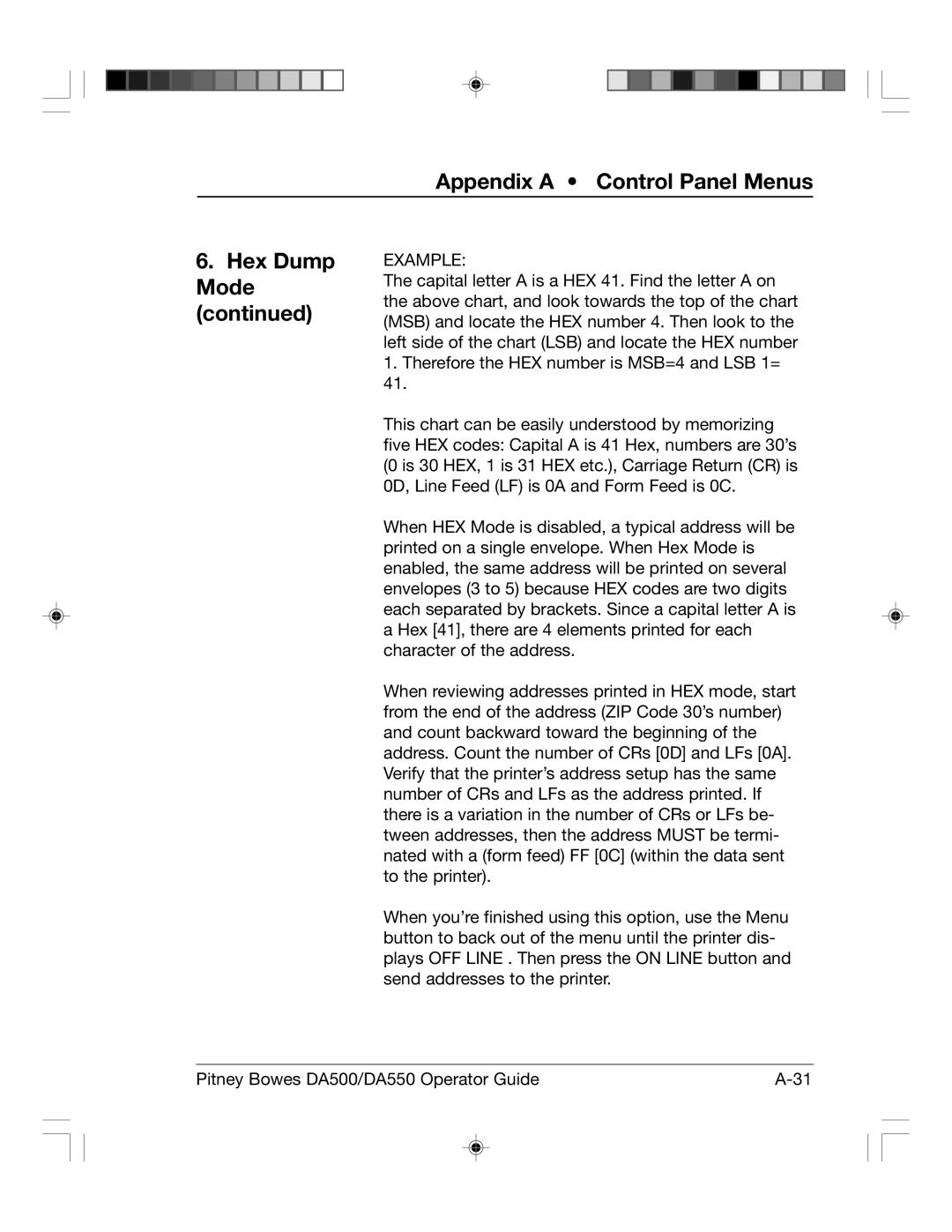
Appendix A • Control Panel Menus
6.Hex Dump Mode (continued)
EXAMPLE:
The capital letter A is a HEX 41. Find the letter A on the above chart, and look towards the top of the chart (MSB) and locate the HEX number 4. Then look to the left side of the chart (LSB) and locate the HEX number
1.Therefore the HEX number is MSB=4 and LSB 1=
This chart can be easily understood by memorizing five HEX codes: Capital A is 41 Hex, numbers are 30’s (0 is 30 HEX, 1 is 31 HEX etc.), Carriage Return (CR) is 0D, Line Feed (LF) is 0A and Form Feed is 0C.
When HEX Mode is disabled, a typical address will be printed on a single envelope. When Hex Mode is enabled, the same address will be printed on several envelopes (3 to 5) because HEX codes are two digits each separated by brackets. Since a capital letter A is a Hex [41], there are 4 elements printed for each character of the address.
When reviewing addresses printed in HEX mode, start from the end of the address (ZIP Code 30’s number) and count backward toward the beginning of the address. Count the number of CRs [0D] and LFs [0A]. Verify that the printer’s address setup has the same number of CRs and LFs as the address printed. If there is a variation in the number of CRs or LFs be- tween addresses, then the address MUST be termi- nated with a (form feed) FF [0C] (within the data sent to the printer).
When you’re finished using this option, use the Menu button to back out of the menu until the printer dis- plays OFF LINE . Then press the ON LINE button and send addresses to the printer.
Pitney Bowes DA500/DA550 Operator Guide |
